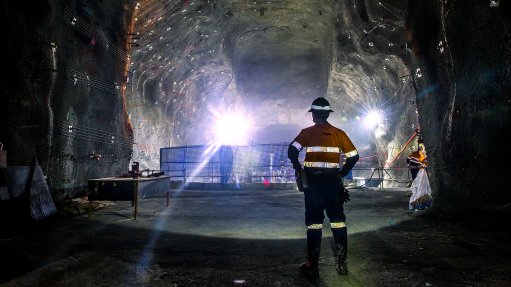
Canada-listed Turquoise Hill said on Thursday that it had applied for an interim order in its arbitration proceedings with controlling shareholder Rio Tinto, stating that the major’s actions would limit its ability to pursue financing options for the Oyu Tolgoi project, in Mongolia.
The junior said that certain actions of Rio Tinto would hurt its prospects of implementing a funding strategy and would pre-empt the ultimate decision of the arbitrator.
According to Turquoise Hill, Rio Tinto was purporting to use certain procedures under contractual arrangements to compel Turquoise Hill to authorise Rio Tinto to pursue re-profiling negotiations with existing lenders “in a manner that the company considers will render Oyu Tolgoi LLC unable to execute an offering of bonds in 2021”.
Tensions between Turquoise Hill and Rio Tinto have been escalating over how to fund the $1.4-billion cost blowout at the copper and gold underground project.
Turquoise Hill in November started arbitration proceedings in British Columbia seeking clarity on the obligations of Rio Tinto to support the company in seeking additional financing for Oyu Tolgoi. Rio Tinto has said it would not consent to debt of more than $500-million in additional lending under the project financing and that the balance of the funding had to be met by way of a Turquoise Hill equity offering.
Oyu Tolgoi is Turquoise Hill’s principal and only material mineral resource property. Turquoise Hill's ownership of the Oyu Tolgoi mine is held through a 66% interest in Oyu Tolgoi LLC, while Erdenes Oyu Tolgoi LLC, a Mongolian State-owned entity, holds the remaining 34% interest.
The Mongolian government is unhappy with Rio Tinto’s plans for the underground expansion of Oyu Tolgoi. Earlier this month, Turquoise Hill said that Mongolia was considering terminating the expansion citing concern that the rising development costs had eroded the economic benefits that Mongolia had hoped to get.